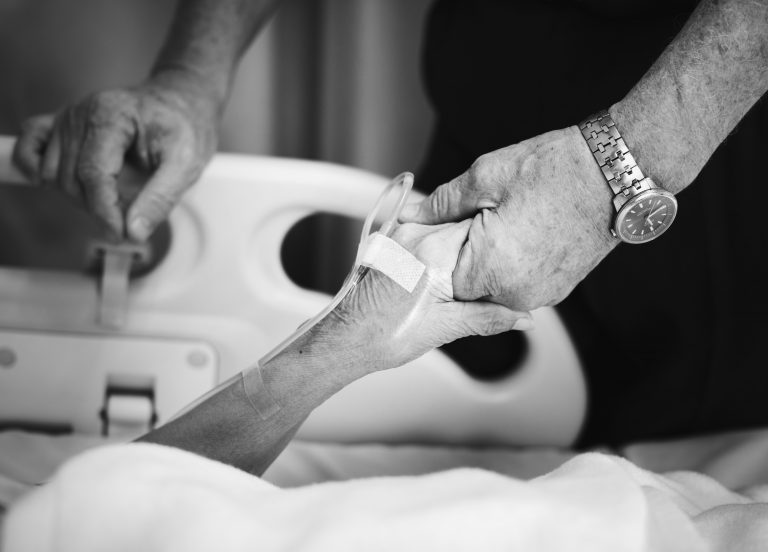Although cancer in men has declined slightly and the overall rate remains steady in women, cancer is still a serious public health concern.
One in four deaths are cancer-related, according to the Centers for Disease Control and Prevention. Currently, in the United States, there are just under 2 million new diagnosed cases, while cancer-related deaths total 606,880 annually. On average, men are 17 percent more likely to have cancer in their lifetime than women.
Here is how to localize cancer-related stories on the business beat.
Health Care and Costs
Health care costs are a complicated issue, with different states having different health systems, American citizens traveling abroad to get care, discussions over the “public option” and “Medicare for All,” and more.
Cancer is expensive. The American Cancer Society reports that almost $88 billion was spent for cancer-related health care in the U.S. in 2014. This included hospital outpatient or officer-based provider visits, emergency room stays, treatment and medication, and out-of-pocket and insurance-related costs. Cancer patients are also twice as likely to declare bankruptcy, the AARP says.
Crowd-funding sites such as GoFundMe allow users to campaign to help cover the financial costs, as well as funerals.
How are people today coping with the financial costs? How much does their insurance cover? Are there trends in methods of raising donations?
The Fraudulent and Controversial Side
The FDA has a list of illegally sold and advertised products that claim to diagnose, treat or help with cancer in other ways. Several corporations, such as Arizona-based Insys Therapeutics, have been accused of inflating pain relief for cancer patients in hopes to boost profits, resulting in a lawsuit filed by the state Attorney General.
Charities such as Susan G. Komen’s and the American Breast Cancer Foundation have been criticized for contributing or donating, despite receiving a lot of money from corporate sponsors. Activist groups like Think Before You Think also accuse them of focusing more on profit, marketing and trademarking than on cancer research or treatment.
Others, including the Breast Cancer Society and the Cancer Fund of America, have been dissolved by the Federal Trade Commission, who declared them as scams.
There are also issues of discrimination in health care, including within the LGBTQIA community and with women. Who has experienced these, and what were the consequences or results for both the patients and providers?
Charities and Partnerships (Real Ones)
Charity Watch, founded as the American Institute of Philanthropy, provides watchdog information. Approved charities have been deemed “top-rated,” including in issues of transparency and donating the majority of profits to programs. Charity Watch currently lists 12 cancer-centered charities, including the Cancer Research Institution and the Leukemia and Lymphoma Society.
The American Cancer Society and the National Association of Basketball Coaches have partnered to create Coaches vs. Cancer in order to raise awareness and funds for cancer research and treatment. It has such sponsors as Infiniti and Beckton Dickinson (or BD.com). The concept grew out of a former University of Missouri’s head coach, who challenged people to pledge an amount for every 3-point shot his team made during the basketball season.
Some questions to be asked can delve into more specifics. Which local or national organizations provide specialized resources, such as for families or children? Do they cover travel, treatment, or more?
Other corporations partner with cancer organizations for not only research and treatment but also humanitarian aid, such as the nonprofit Make-A-Wish America.
Are there more specialized groups for certain types of cancer? For example, on average, breast cancer, followed by lung and prostate cancer, are the most common types in the United States. (For men, it’s prostate cancer, while for women, it’s breast cancer, according to the American Cancer Society.)
Cancer Coaches
Some cancer patients don’t know what to do after a diagnosis. In response, they turn to “cancer coaches,” many of whom are survivors of the disease themselves. Not only do these cancer coaches help guide those diagnosed through the long and harrowing treatment process, they also stick around afterwards in order to help the patient re-acclimate to “normal” life.
Some places offer training programs to be certified. One entitled A Panicked to Power offers 14-week training on question and answer sessions, two certification tests, and building a client base and connections. Some have a background in medicine, psychology, or spiritually.
Other countries, such as Britain and Australia, also have this trend. Canada is also seeing this trend, even hiring paid cancer coaches with no out-of-pocket costs to patients. How is this trend developing in the U.S.? Are there any differences?
Apps and Products
There are apps available through the Apple Store, but some can be more specialized than others. For example, My Breast Cancer Coach app advertises a personalized treatment guide, a calendar to keep track of appointments, and a list of resources.
Companies such as OncoGambit advertise a personalized treatment plan for about $50.
It also may be interesting to analyze the publishing market, from self-help books, memoirs, or fiction. What are the trends? How many people purchase them, and who: patients, advocates, families or loved ones, etc.? Do they find these products helpful or effective?
Additional Resources
The American Cancer Society has compiled multiple statistics and reports on their website. In addition, it provides a PowerPoint presentation with current numbers, although some are taken from 2015 Center of Disease Control data. The National Cancer Institute also has sets of data visualisations.
A 2019 statistical analysis from the American Cancer Society can be found here.
There are also government statistics by state, as well as a 2018 fact sheet.











